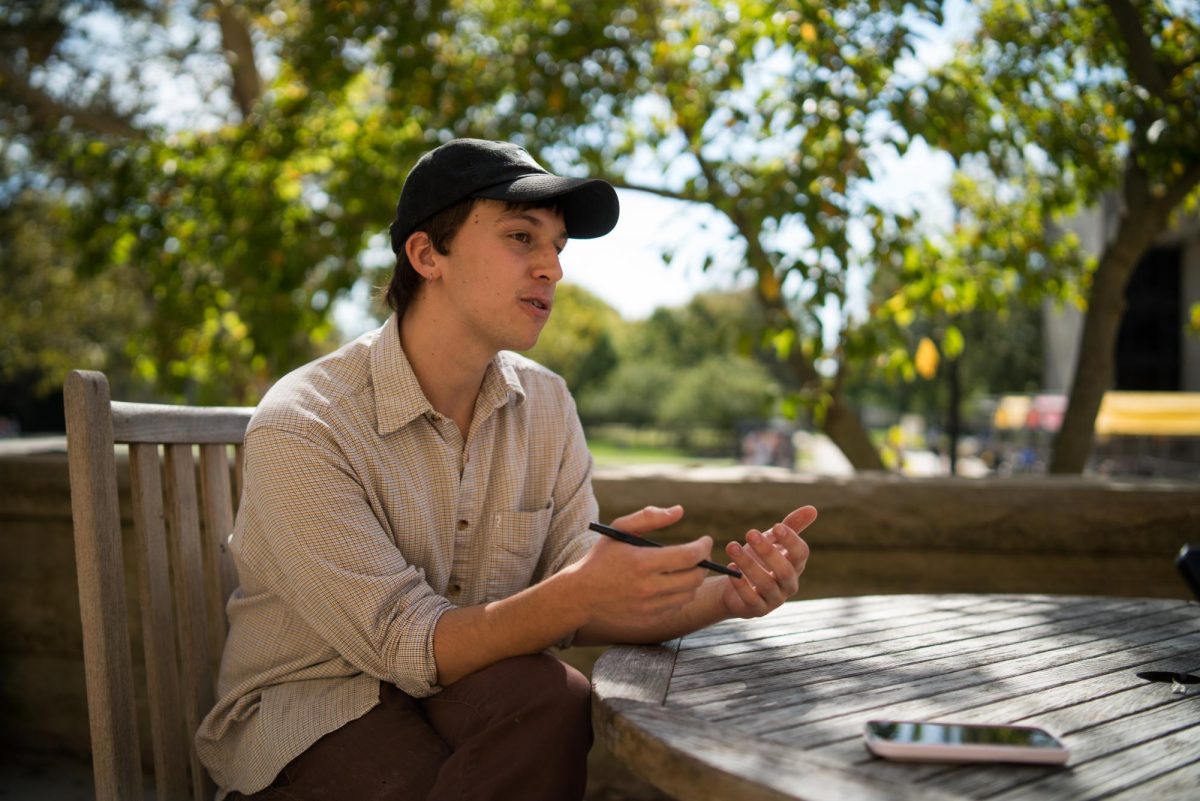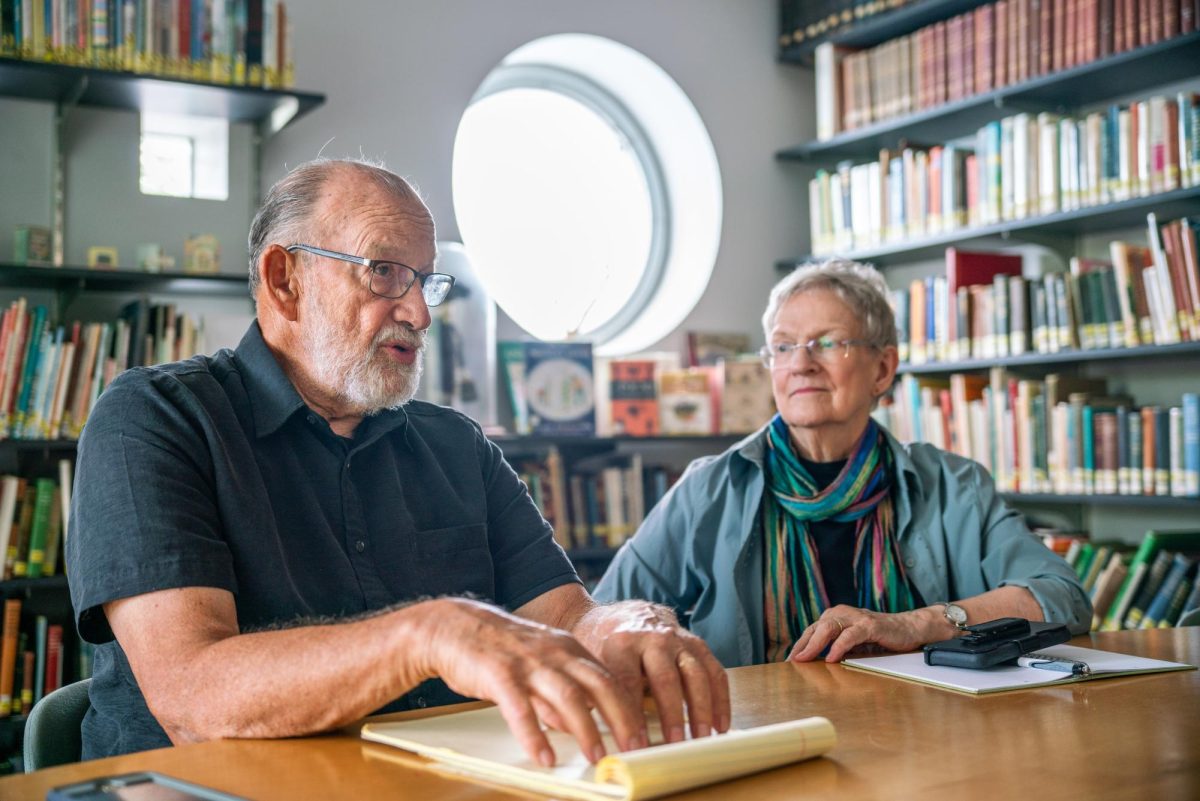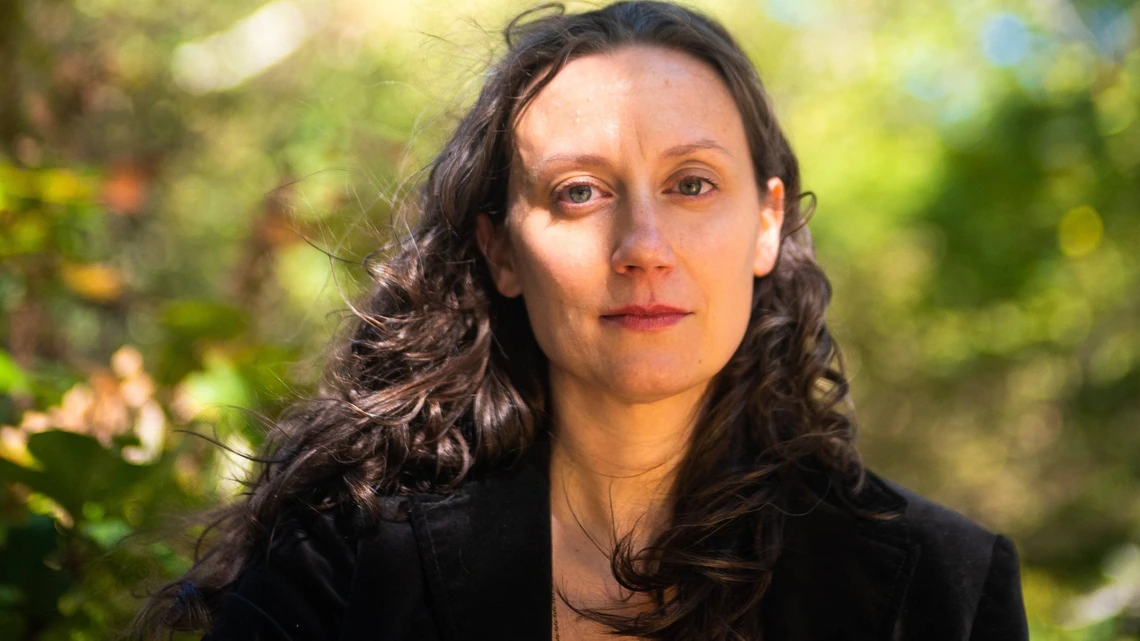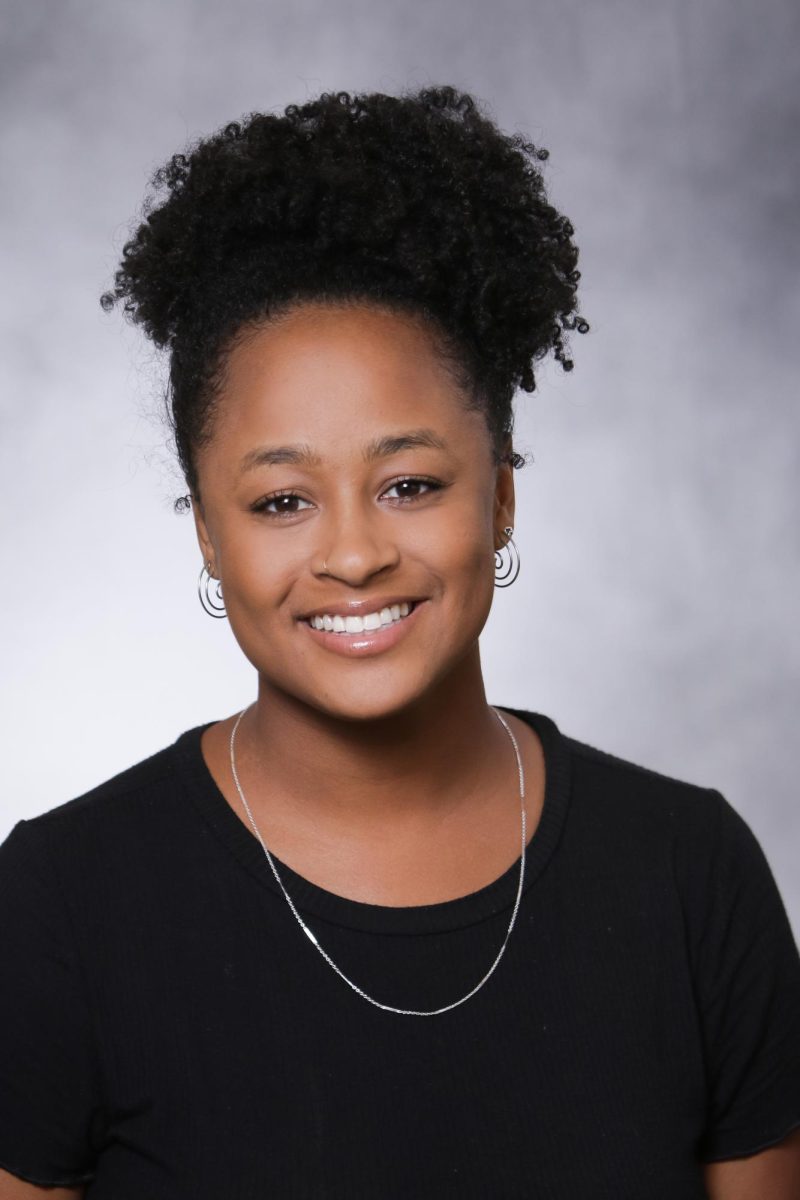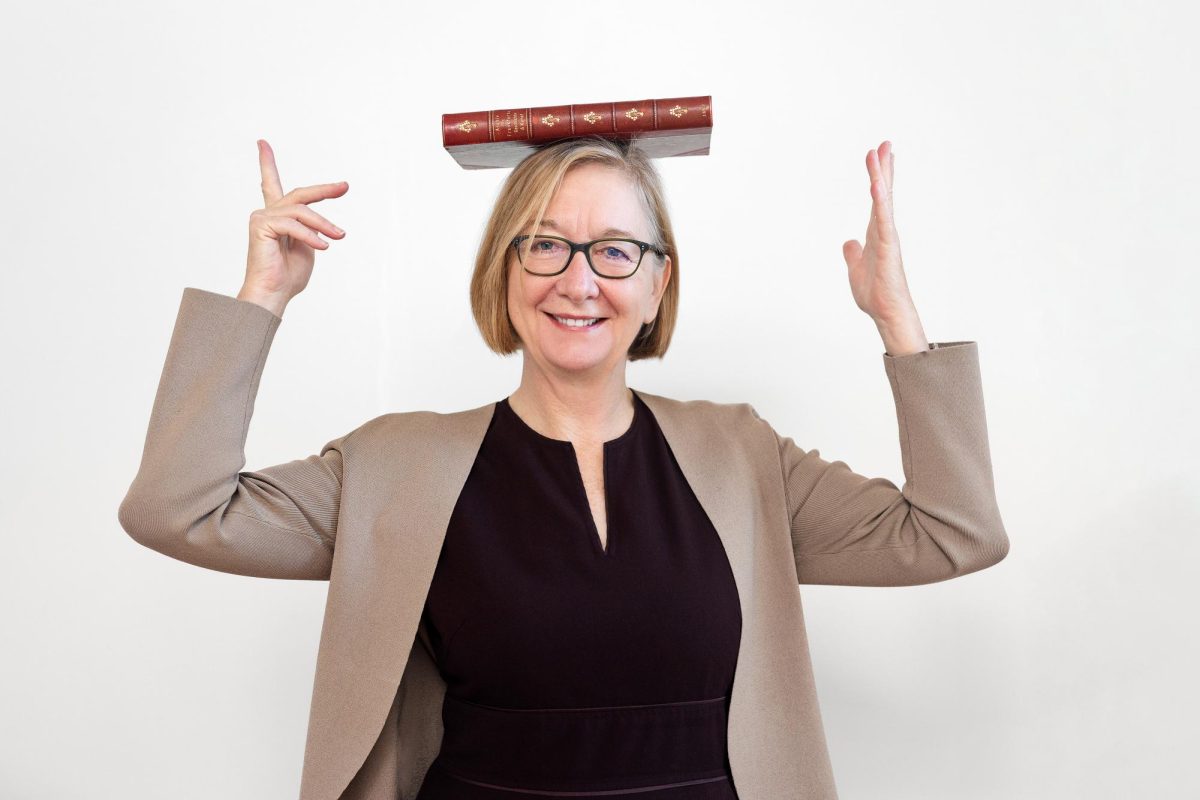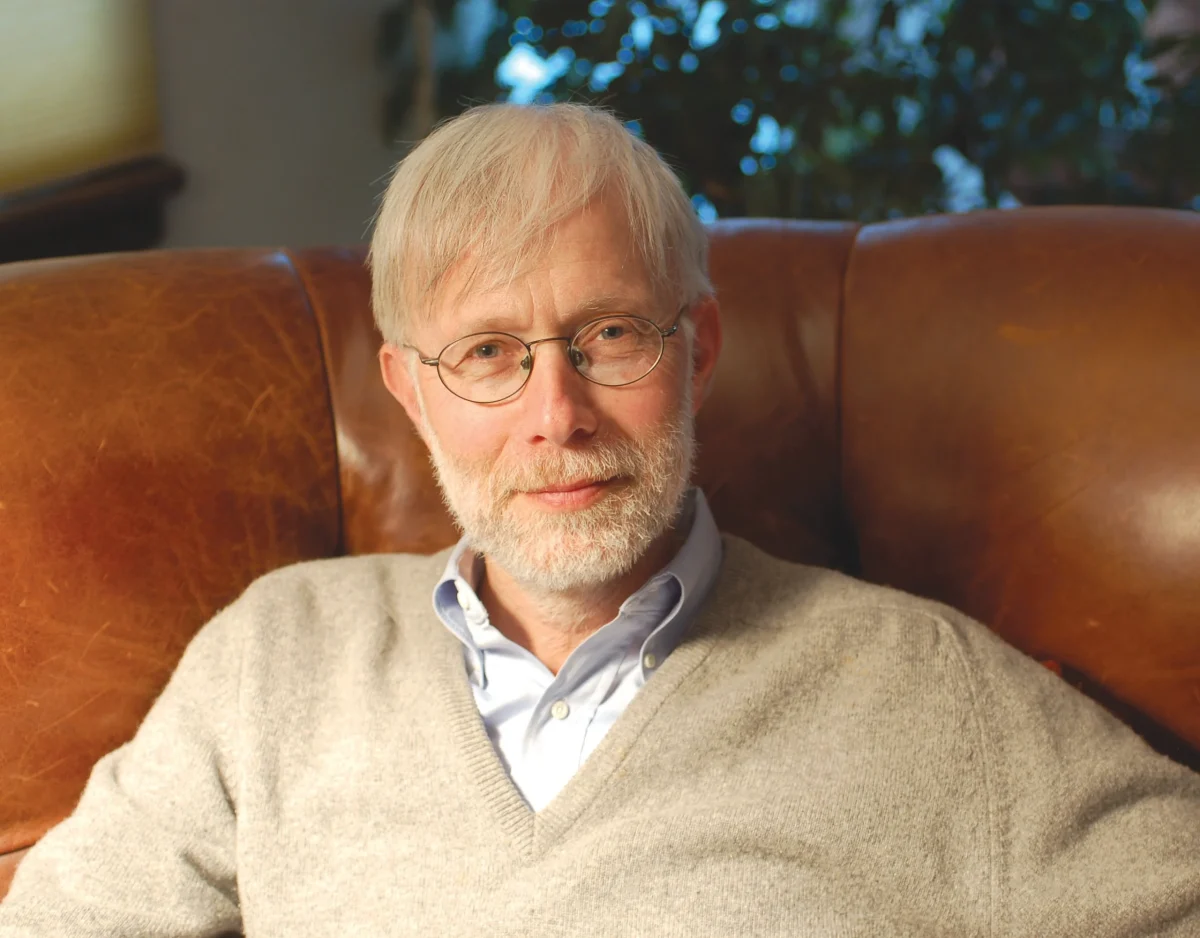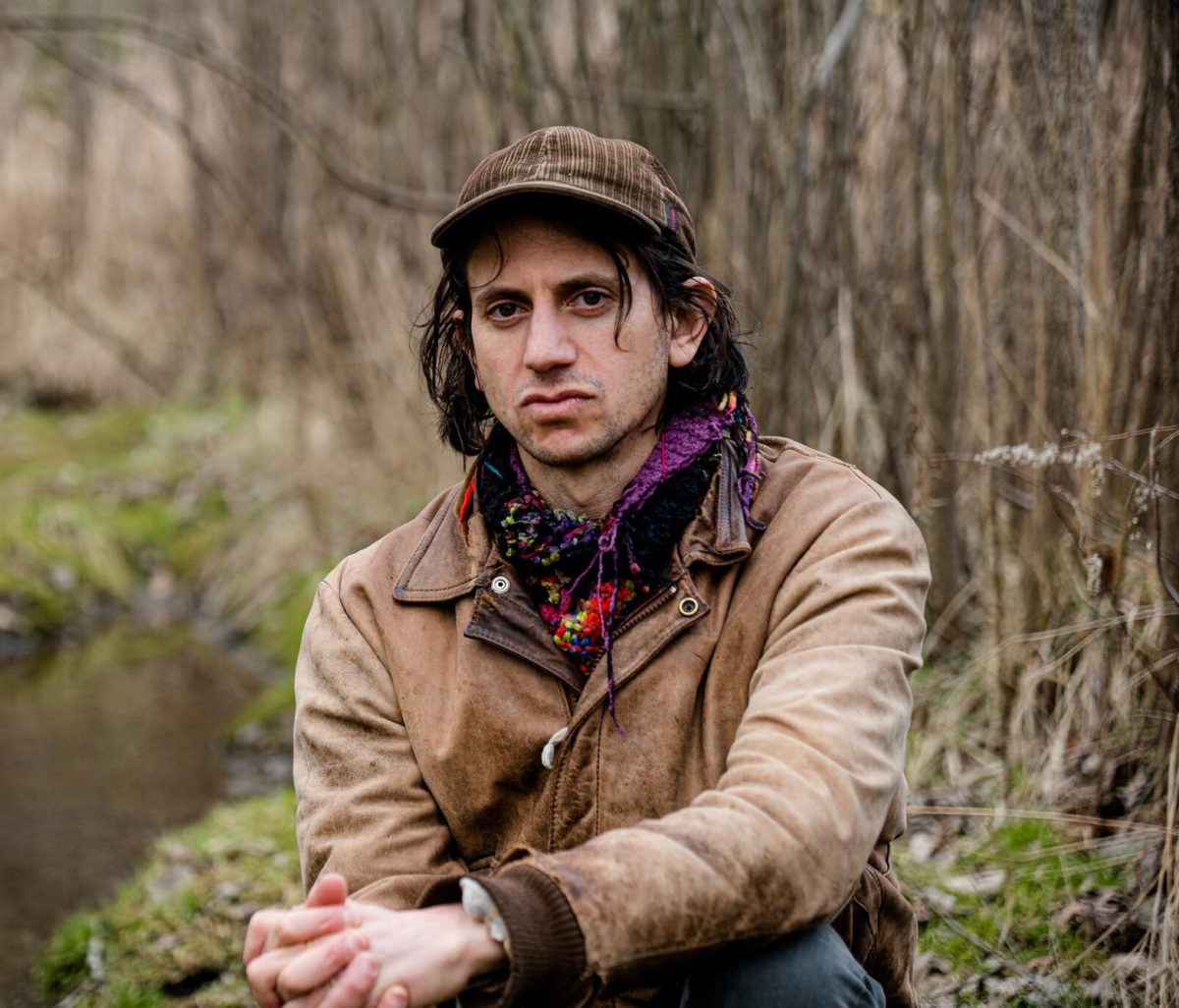Elijah Freiman is a College third-year studying Food Studies as an individual major. He currently serves as president of the Oberlin Student Cooperative Association, founded in 1950. This student position is a one-year term. OSCA is set to renegotiate their contract with Oberlin College in 2026.
This interview has been edited for length and clarity.
What is OSCA’s role on campus?
When I think about OSCA’s role on campus, one of the things that first comes to mind is “learning and labor.” I think that Oberlin was built on this notion that learning on its own is not sufficient, that we learn best when we are also getting our hands dirty — the stuff that we will be spending most of our lives outside of school doing. So that’s one of the big things that OSCA provides. The other thing is that there’s a lot of isolation, not just at Oberlin but in the world of secondary education at large. People come to college often with a very specific specialty in mind, a path of study that they’re pursuing, and we have this tendency to kind of silo ourselves, and I think OSCA exists as a counterweight to that. OSCA is around so that we don’t all get stuck doing our own individual thing, focusing on this and that, staying in practice rooms for six hours. You can do that, but then you can also go to a meal with 80 of your best friends afterwards. OSCA’s role is to make sure that we don’t fall into these patterns of siloization. I think it does that for OSCA members, but I also think that it does that for the Oberlin student community at large. Whether you are a guest at a co-op meal or just somebody who’s coming to a jazz party at Tank, I think that having that there is valuable not just to its members but to student life.
How does OSCA function financially?
We pay the College for each bed, around $4,000 a semester, $8,000 a year, whether or not we fill that bed. There’s this imbalanced equation in which OSCA members can join Residence Life at any time, and ResLife members can only join OSCA at the very beginning of the semester. There’s this constant trickling of OSCA students into ResLife, and it’s not reciprocal. This means that we have all of these empty beds all of the time that we’re paying for that could very easily be filled. Due to the rent contract’s insistence that it would be an undue administrative burden on ResLife to let students join OSCA throughout the year, we incur these giant financial losses. It’s a loss in all the obvious ways. We would love to have the people that are excited about being in OSCA be able to actually join. It’d be great for our communities. It’s a loss in the obvious financial sense that we’re paying for these beds, but it’s also a loss for Oberlin in that they are concerned about having enough beds to house their students. They’re building this new $55 million dorm, and we have beds. We would be happy to fill these beds. So it’s weird to be in that situation while there is also a housing shortage amongst Oberlin students.
Can you talk about OSCA’s sustainability practices?
OSCA has always been committed to sustainable housing and dining. We purchase well over half of our foods from local vendors. I can say that as somebody who worked as an All-OSCA food coordinator, a huge chunk of our food comes from within an hour of Oberlin. We’re also very concerned with food waste — always doing what we can to kind of calibrate the amount of food that we’re cooking to make sure that everybody has as much food as they want while also reducing the amount that we throw away at all times. When you look at the amount of food waste generated by OSCA and the amount generated by Campus Dining Services, OSCA is throwing out so much less food, and the food that we are throwing out is more environmentally sound.
What challenges is OSCA facing? How are you working to counteract negative trends related to enrollment and diversity?
Right now our focus is on ensuring OSCA’s continued financial viability for the years to come. The rent contract that was renegotiated in 2020 between Oberlin and OSCA that went into effect in 2021 has put a significant financial hardship on OSCA, and it meant that we had to nearly double our prices for room and board. I think now we’re also talking about the value of community and the value of consensus and these kinds of learning opportunities. When OSCA was originally founded, it was founded based on basic economic cooperative principles — if we pool our money, we are able to receive the benefits of economies of scale. And ultimately, people that otherwise wouldn’t be able to afford an Oberlin College education will be able to afford it. That’s the foundation of OSCA going back 70 years.
Unfortunately, because of the College’s policies, we’ve had to raise our rates a lot higher than we would like. It affects our ability to maintain cultural diversity in this space when the College reduces students’ financial aid on a dollar-for-dollar basis around the savings that they would incur from being in OSCA. The question of cultural diversity is a super important one that OSCA is trying to reckon with, but I would say that our hands, in a lot of ways, are tied by the College and the kind of financial burden they’ve placed on us.
Are there any new initiatives that OSCA is currently working on?
The things that are really exciting right now are a lot of student-led things. We have the revival of the Brown Bag Co-op, which is super exciting. It was around for many years and then went dormant after COVID-19 struck. What excites me about the Brown Bag Co-op is it’s not offering the kind of intense in-person community that a lot of the other co-ops offer, but what it is doing is using OSCA’s relationship with the College to provide more options for students. I know from my individual course of study how important what we eat is to our individual identity formations. When the College imposes these restrictions on what you have access to, how we identify is restricted in this corresponding way. I think that OSCA opening up the alternative for people to eat the way that they want to eat is a big part of the kind of self-actualization that happens in college — the understanding of who you are.
The other thing that we’re really excited about is the potential revival of the Kosher Halal Co-op. The College has been working with us on transferring alumni money that they were once in possession of to us so that we can execute on that fund. That’s really exciting for me. You know, I grew up hearing all sorts of stories about the Kosher Halal Co-op from my dad, my aunt, my cousin, who were all in it. We would hear about Passover seders that they would stay at and talk until they heard the birds chirping; there was this intense spiritual energy going on there.
You mentioned that you’re an OSCA legacy. What does it mean to be part of that lineage?
The OSCA that my dad was in is very different from the OSCA that I am in. My dad was there for naked mud wrestling at Harkness House. It’s harder to get away with that now. One of the most valuable parts about being in OSCA is that it connects you to this larger lineage of people who’ve been committed to these communities for a long time. We had the OSCA alumni ice cream social this past Saturday on the Tank lawn, and there was a record number of alumni that attended. It’s incredible to hear these old stories. In a lot of ways they’re interesting from a narrative standpoint, but also they help us imagine different ways of organizing our own communities. I think that when I first got to OSCA, a part of me was like, “This is so awesome.” Also, I kind of wish that I was here in the ’80s. But then I realized that having this history is its own luxury. It’s a thing that they didn’t have in the ’80s, this long archive to pull from. It’s this great gift to have that history to lean on when things are difficult. We don’t need to reinvent the wheel. This works, and it’s been working for a long time, and people look back on it as the foundational part of their Oberlin experience.


